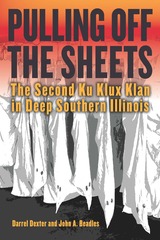
“The classic of all Europe.” —T. S. Eliot
Virgil (Publius Vergilius Maro) was born in 70 BC near Mantua and was educated at Cremona, Milan, and Rome. Slow in speech, shy in manner, thoughtful in mind, weak in health, he went back north for a quiet life. Influenced by the group of poets there, he may have written some of the doubtful poems included in our Virgilian manuscripts. All his undoubted extant work is written in his perfect hexameters. Earliest comes the collection of ten pleasingly artificial bucolic poems, the Eclogues, which imitated freely Theocritus’ idylls. They deal with pastoral life and love. Before 29 BC came one of the best of all didactic works, the four books of Georgics on tillage, trees, cattle, and bees. Virgil’s remaining years were spent in composing his great, not wholly finished, epic the Aeneid, on the traditional theme of Rome’s origins through Aeneas of Troy. Inspired by the Emperor Augustus’ rule, the poem is Homeric in metre and method but influenced also by later Greek and Roman literature, philosophy, and learning, and deeply Roman in spirit. Virgil died in 19 BC at Brundisium on his way home from Greece, where he had intended to round off the Aeneid. He had left in Rome a request that all its twelve books should be destroyed if he were to die then, but they were published by the executors of his will.
The Loeb Classical Library edition of Virgil is in two volumes.

“The classic of all Europe.” —T. S. Eliot
Virgil (Publius Vergilius Maro) was born in 70 BC near Mantua and was educated at Cremona, Milan, and Rome. Slow in speech, shy in manner, thoughtful in mind, weak in health, he went back north for a quiet life. Influenced by the group of poets there, he may have written some of the doubtful poems included in our Virgilian manuscripts. All his undoubted extant work is written in his perfect hexameters. Earliest comes the collection of ten pleasingly artificial bucolic poems, the Eclogues, which imitated freely Theocritus’ idylls. They deal with pastoral life and love. Before 29 BC came one of the best of all didactic works, the four books of Georgics on tillage, trees, cattle, and bees. Virgil’s remaining years were spent in composing his great, not wholly finished, epic the Aeneid, on the traditional theme of Rome’s origins through Aeneas of Troy. Inspired by the Emperor Augustus’ rule, the poem is Homeric in metre and method but influenced also by later Greek and Roman literature, philosophy, and learning, and deeply Roman in spirit. Virgil died in 19 BC at Brundisium on his way home from Greece, where he had intended to round off the Aeneid. He had left in Rome a request that all its twelve books should be destroyed if he were to die then, but they were published by the executors of his will.
The Loeb Classical Library edition of Virgil is in two volumes.

Artful hexameters.
Horace (Quintus Horatius Flaccus, 65–8 BC) was born at Venusia, son of a freedman clerk who had him well educated at Rome and Athens. Horace supported the ill-fated killers of Caesar, lost his property, became a secretary in the Treasury, and began to write poetry. Maecenas, lover of literature, to whom Virgil and Varius introduced Horace in 39, became his friend and made him largely independent by giving him a farm. After 30 Horace knew and aided with his pen the emperor Augustus, who after Virgil’s death in 19 engaged him to celebrate imperial affairs in poetry. Horace refused to become Augustus’ private secretary and died a few months after Maecenas. Both lyric (in various metres) and other work (in hexameters) was spread over the period 40–10 or 9 BC. It is Roman in spirit, Greek in technique.
In the two books of Satires Horace is a moderate social critic and commentator; the two books of Epistles are more intimate and polished, the second book being literary criticism as is also the Ars Poetica. The Epodes in various (mostly iambic) metres are akin to the ‘discourses’ (as Horace called his satires and epistles) but also look towards the famous Odes, in four books, in the old Greek lyric metres used with much skill. Some are national odes about public affairs; some are pleasant poems of love and wine; some are moral letters; all have a rare perfection. The Odes and Epodes are found in LCL 33.
READERS
Browse our collection.
PUBLISHERS
See BiblioVault's publisher services.
STUDENT SERVICES
Files for college accessibility offices.
UChicago Accessibility Resources
home | accessibility | search | about | contact us
BiblioVault ® 2001 - 2024
The University of Chicago Press









